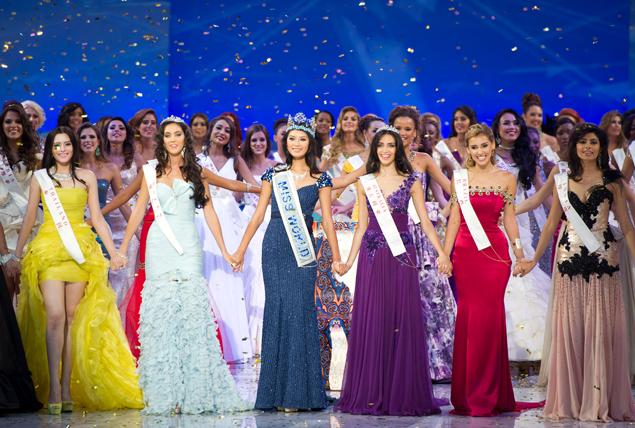Counter-Production: Beauty Pageants
January 23, 2015
In our generation, those with interesting personalities and wit can often be popular and self-assured, without needing to be physically attractive. This makes a concept such as a beauty pageant bring about hostility from progressive and ambitious young women and men; yet it is still a fad that, like any other meaningless contest, has little reason to be eliminated.
For feminists like me, the superficiality and sexism of a pageant seem like the least likely thing to watch. Despite this, I have been on pageant websites a few times when coming across interesting stories about contestants and former winners. Although I found the photos to be as overly glamourized as one would expect, behind each photo was a story of a woman with as many well-rounded talents and ambitions as normal young adults. I watched Miss USA on television not only to see for myself what a pageant is like, but to figure out more about each contestant’s story and culture. This was pretty neat, but other than the fact that a martial arts girl was given the title, nothing else stood out.
In keeping with the times, contestants are asked to display some articulation and intelligence in answering questions. Tentative winners are also promised scholarship money, the chance to travel and speak in different countries, and immediate fame. Still, I have yet to see former Miss Universe Olivia Culpo do anything newsworthy other than date Nick Jonas, and any “successful” pageant winner will most likely be contributing to entertainment or modeling rather than a having a career in science or politics or even humanitarianism.
Since the time that contestants have on the stage and in the public eye is limited, even if they do become title holders, there is little reason for people to be drawn to beauty pageants because they showcase the talent and intelligence of these women. Beauty is still widely embraced as being the prerogative for a woman to be worthy of attention. Even if a woman does not fulfill society’s preconceptions of beauty, the public has a way of calling any successful woman beautiful, while it is unlikely for an average-looking successful man to have focus drawn to his looks. Still, women can be just as guilty of fawning over random men for their looks, as evidenced by the organization of several men’s pageants over the years.
Looking through news feeds and coming across articles listing actresses and athletes who are deemed “the most beautiful,” it is clear that in all aspects of American culture, beauty is something that can never be overlooked.
In this way we can blame the longevity of pageants on sexism, while one other key factor to why we still have pageants, is because young adults are still willing to compete in them. While there are other, more progressive ways in which women can garner scholarships and benefit their communities on a local and global scale, beauty pageant contestants may feel that being dolled up into a traditional American experience is a fun way to meet these goals. In the spirit of feminism, stopping them would be counterproductive to their freedom of choice.









